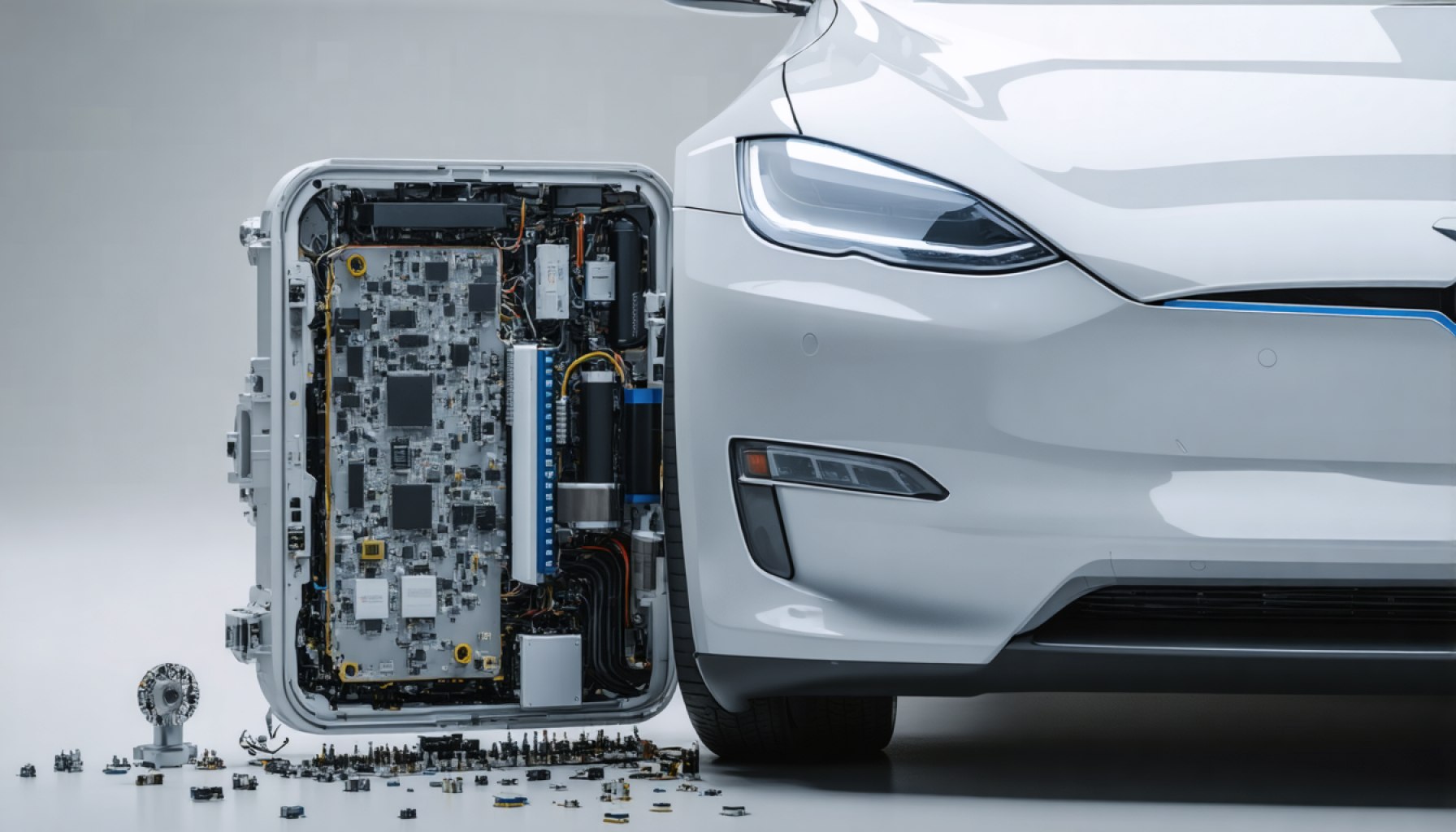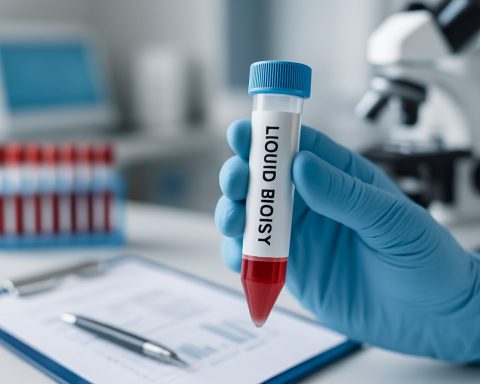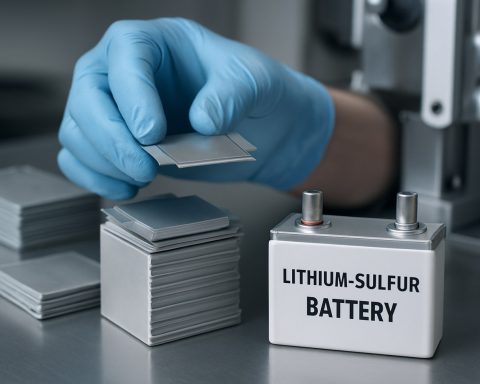- Altilium is leading a green tech revolution in the UK, focusing on sustainable EV battery production using recycled materials.
- At the UK Battery Industrialisation Centre (UKBIC) in Coventry, Altilium has successfully manufactured EV battery cells using their EcoCathode process.
- The recycled cells perform on par with traditional ones, making a strong case for the viability of alternative battery materials.
- The EcoCathode process recovers over 95% of critical metals, such as lithium, from spent batteries, reducing environmental impact and dependence on imports.
- Altilium’s work demonstrates that recycled components can integrate seamlessly into existing production processes, facilitating large-scale adoption.
- This advancement supports a shift towards battery circularity and sustainability, underlining the potential for economic independence in material sourcing.
- Altilium’s innovations highlight the urgent need for industries to pivot towards sustainable technology and bolster the global green tech revolution.
A quiet revolution in green technology has emerged from the heart of the United Kingdom’s industrial landscape. Amidst the rolling hills of Devon and the bustling innovation hub of Coventry, Altilium, a pioneering clean technology group, is at the vanguard of change. Their mission is audacious: to reshape the future of electric vehicle batteries by proving that sustainable, recycled materials can compete neck-and-neck with their traditionally mined counterparts.
At Coventry’s UK Battery Industrialisation Centre (UKBIC), excitement crackles like the high voltage in an electric vehicle’s drivetrain. In this state-of-the-art facility, Altilium has recently undertaken a groundbreaking initiative. The focus? Manufacturing EV battery cells at an industrial scale using their recycled EcoCathode materials. The ambition? To show that recycled cathodes are not just a compromise, but an evolution in battery technology.
The results have electrified the field. Testing demonstrated that these recycled cells perform on par with traditional cells, a testament to the viability of alternative battery materials. Altilium’s EcoCathode process, impressively, recovers over 95% of critical metals such as lithium from spent batteries. This achievement not only reduces environmental impact but also suggests a future where the UK might lessen its reliance on imported metals.
As technicians in Coventry completed the assembly trials, they found no significant manufacturing hurdles. Altilium’s recycled components seamlessly integrated into the standard production processes used for commercial batteries, promising a smoother transition to large-scale adoption.
In an era where the drive toward net-zero is more pressing than ever, Altilium’s advances mark a critical shift towards battery circularity—hinting at a future in which the circular economy isn’t just a theoretical ideal, but an operational reality.
“This is more than just a technological achievement; it’s a crucial step towards a sustainable energy future,” noted Dr. Christian Marston, Altilium’s co-founder. Meanwhile, Richard LeCain, Chief Technology Officer at UKBIC, reflected on this milestone as the dawn of a new market for recycled materials in battery production.
As the UK forges ahead in the clean energy race, Altilium’s work not only preserves the planet’s resources but also opens doors to innovation and economic independence in material sourcing. It’s a clear takeaway for industries worldwide: the time to pivot toward sustainable battery technology isn’t approaching—it’s here.
The implications are profound for the future of not just transportation, but technology as a whole, signaling the potential for recycled materials to redefine what’s possible across the board. As discussions on sustainability and innovation continue, Altilium has firmly placed itself at the heart of the dialogue, charging up the global green tech revolution.
The Revolution of EV Battery Recycling: Altilium’s Green Tech Breakthrough
Introduction
A quiet yet revolutionary development in green technology is unfolding in the UK, spearheaded by Altilium. This pioneering company is reshaping the landscape of electric vehicle (EV) batteries by demonstrating the power of sustainable, recycled materials. Their vision and efforts promise a transformative impact not only on battery manufacturing but on the broader technological and environmental sectors.
How Altilium is Transforming EV Battery Production
1. Advanced Recycling Techniques
Altilium’s approach utilizes EcoCathode materials, which have been shown to recover over 95% of critical metals such as lithium from used batteries. This high recovery rate significantly reduces environmental impact and resource dependency, paving the way toward a more sustainable future.
2. Performance on Par with Traditional Materials
Contrary to common skepticism about recycled materials, Altilium’s batteries perform equivalently to those made from freshly mined components. This parity is crucial for wider adoption and dispels myths that recycled materials are inherently inferior.
Industry Trends and Predictions
1. Circular Economy in Battery Production
The success of initiatives like Altilium’s showcases the potential for a circular economy in the battery industry. By reusing materials, manufacturers can reduce waste, decrease mining activities, and improve sustainability metrics.
2. Increasing Demand for Sustainable Batteries
Global efforts to achieve net-zero emissions have amplified the demand for sustainable technologies. The growth in electric vehicles is expected to continue, driven by environmental policies and consumer preference for green alternatives. Altilium’s advancements position them as a leader in this market, with potential expansions into international markets.
Pros and Cons of Recycled Battery Materials
Pros:
– Environmental Impact: Substantial reduction in waste and resource extraction.
– Economic Independence: Less reliance on imported metals strengthens local economies.
– Sustainability: Aligns with global sustainability goals and regulatory requirements.
Cons:
– Initial Costs: Although promising, the initial investment in recycling infrastructure can be high.
– Technological Adjustment: Adapting standard production lines to accommodate new materials may require additional training and investment.
Real-World Applications and Use Cases
Altilium’s project at the UK Battery Industrialisation Centre (UKBIC) is a beacon for future collaborations and innovation. Industries ranging from consumer electronics to aerospace could benefit from recycled battery technology. This holds promise not only for reducing costs but also for enhancing product sustainability.
Security and Sustainability Considerations
Recycling batteries and utilizing reclaimed materials enhance supply chain security by mitigating the risks associated with geopolitical uncertainties tied to raw material availability. Sustainability efforts are further supported through reduced carbon footprints implied by less-intensive manufacturing processes.
Actionable Recommendations
– Industry Stakeholders: Embrace partnerships with recycling tech companies like Altilium to incorporate sustainable practices in supply chains.
– Governments and Policymakers: Encourage regulatory frameworks that incentivize the use of recycled materials.
– Consumers: Opt for products incorporating recycled components, thus promoting a circular economy.
Conclusion
Altilium has showcased a blueprint for sustainable innovation in the realm of electric vehicle batteries. As the conversation around green technology and responsible manufacturing evolves, the company’s work stands as a testament to the feasibility and necessity of adopting recycled materials. The future of battery production is not just promising; it’s already unfolding.
For more information about emerging technologies and innovations in clean energy, visit BBC.









